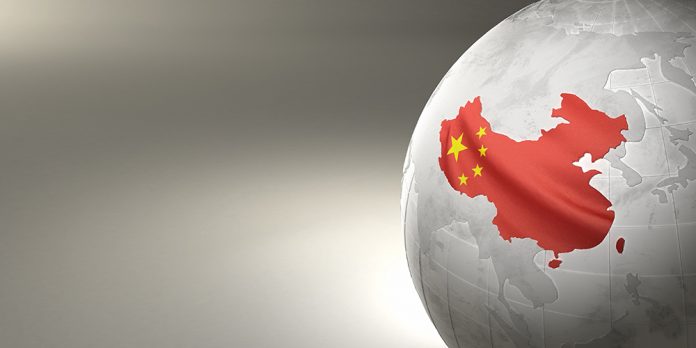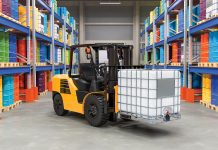A growing chorus of industry voices is calling for more action by the European Union to prevent a flood of cheap imported chemicals from China which could threaten its future viability.
From 2020-2024 an unprecedented wave of new projects has been starting up in China, and with the country’s economy not growing as hoped, producers there have ramped up exports to markets such as Europe.
The wave of capacity expansions will culminate in an astonishing 232.5m tonnes/year of new projects coming onstream in 2023 and 2024, according to research by ICIS.
Growing oversupply in China has depressed prices there, lowering feedstock costs for producers and giving them a competitive edge over Europe. As logistics logjams have eased, the flow of Asian exports to Europe has already dragged European prices down.
The weekly ICIS Petrochemical Index shows how Asian chemical prices detached dramatically from other regions as supply chains snarled up from late 2020, isolating the region from global markets. Now, collapsing demand has reduced pressure on the global logistics system, allowing goods to flow more freely and at much lower pre-pandemic container prices.
Lower Asian prices are now deflating European chemical prices and margins. Data from ICIS Margin Analytics shows how European crackers enjoyed variable margins which flew up to above $1,000/tonne when the logistics crisis was in full swing in 2021.
Russia’s war with Ukraine then pushed up energy costs, plunging margins into negative territory in 2022. Since then, they have turned positive but at a low level. The latest data for 23 June shows that European cracker margins have collapsed to just $85/tonne, less than half of Asia’s $179/tonne.
Many crackers in Europe are operating at technically minimum operating rates of 65-70% due to the low margins and poor demand. One or two are believed to have been shut down.
CALLS FOR ACTION
Pressure is being felt in many European chemical markets, with producers urging the EU to take measures to prevent what they see as unfair competition.
This week concerns are growing that certain aggressively priced imports from Asia are damaging the Europe epoxy resins and bisphenol A (BPA) markets, with players calling for action to be taken for the sake of the region’s industry.
Competition is particularly strong for epoxy resins from China, with prices which are well below European levels.
One European trader of epoxy resins, BPA and epichlorohydrin (ECH) said: “It is hard to understand [how the Chinese do their] calculations- they show negative profits for the epoxy segment and they are selling higher locally than for exports.”
UNDER PRESSURE
There have also been complaints about the impact of cheap imports from Asia from other sectors in Europe.
A propylene producer said: “The market is miserable with [costs] hitting us twice – pressure from imports versus [uncompetitive for] exports. We normally export to Asia but instead they import to us.”
A propylene derivative producer said: “Our market is under huge pressure from Asian imports – due to low freight costs, it’s cheaper to import from Asia. Also lower raw materials have an impact.”
An olefins producer added: “Demand is weak and what is left is damaged by imports.”
According to a Europe-based trader: “I think there should be antidumping on everything otherwise Europe will quickly become a museum. It has been too much and something needs to be done [because] phthalic anhydride (PA), plasticizers, resins and purified terephthalic acid (PTA), PET and finished goods are all coming at cheaper prices.”
A spokesperson said: “The Commission has no ongoing anti-dumping or anti-subsidy investigations on epoxy resin or BPA. Any communication concerning cases that have not been initiated are confidential, thus we cannot comment on whether there have been complaints or requests by industry on this.”
PET ADD UNDERWAY
A European Commission investigation into imports of polyethylene terephthalate (PET) originating in China has been underway since March 2023, with visits now being carried out by officials.
Any proposed measures will be revealed in October and come into effect in April 2024. Players in the recycled PET (R-PET) market are also calling for action against China.
With the PET ADD investigation looking into China PET, there are concerns that other countries may boost their exports to Europe.
“Now producers say OK we did if for China and now we see all the volume coming in from Vietnam and Billion built a new line!” said a Europe-based buyer.
According to ICIS data, Fujian Billion Petrochemicals’ capacity increased from 250,000 tonnes/year in 2022 to 390,000 tonnes/year in 2023 and is due to reach 550,000 tonnes/year by 2024.
“The evolution in terms of conversion costs and the ability to import resin into this geographic region is critical to every producer. There will be changes if this is maintained…“There are capacity increases in Asia, and some are very well positioned irrespective of the antidumping against China,” a producer said.
In early June the Commission also launched an investigation into alleged fraudulently labelled biodiesel imports from China. This followed a complaint by Germany, which is one of the biggest producers and consumers of biodiesel in Europe.
EXPLAINER – HOW DO ADDS WORK?
A non-EU company is ‘dumping’ if it exports a product to the EU at a price lower than the product’s normal value. This is the price on the home market of the non-EU company, or a price based on the cost of production and profit, according to the European Commission.
The Commission opens an investigation if it has sufficient evidence – usually supplied by producers exposed to this unfair competition – that imports into the EU are made at dumped prices and are causing injury to European industry.
The Commission opens an anti-dumping investigation by publishing a notice in the EU’s Official Journal.
The investigation checks:
- whether there is dumping by the producers in the country/countries concerned
- whether the European industry concerned suffers ‘material injury’
- whether there is a causal link between dumping and injury
- whether putting measures in place is not against the European interest
- Only when all four conditions are met can the Commission put anti-dumping measures in place.
The time limit for the Commission’s investigation is 14 months. The results are then published in the Official Journal.
Editorial contributions from Nel Weddle, Heidi Finch, Caroline Murray, Zubair Adam, John Richardson and Matt Tudball. Graphs by Yashas Mudumbai










